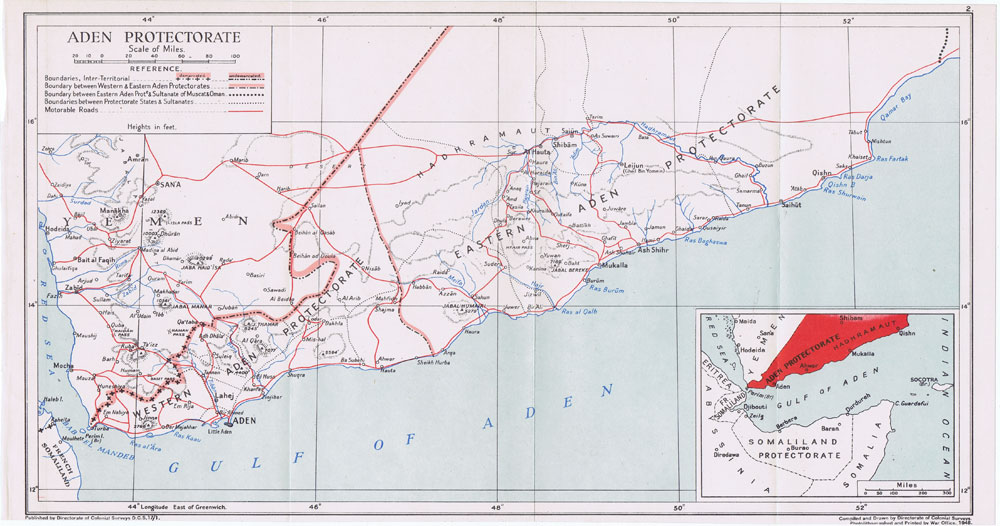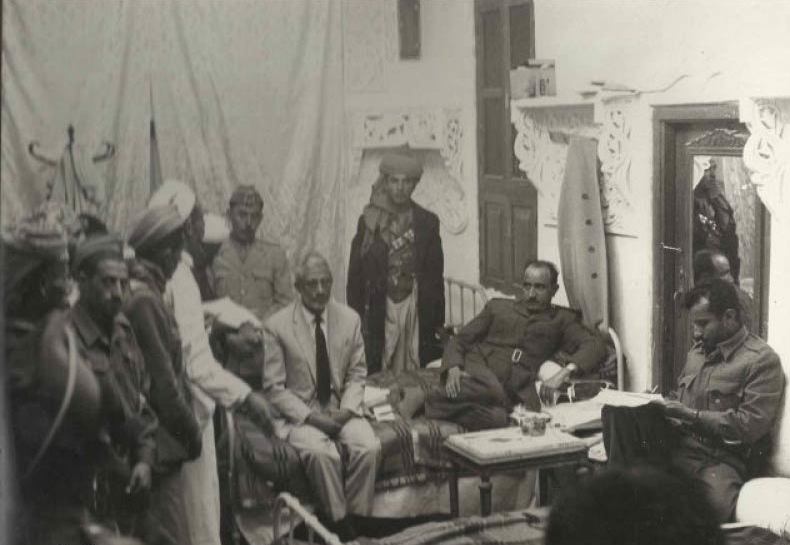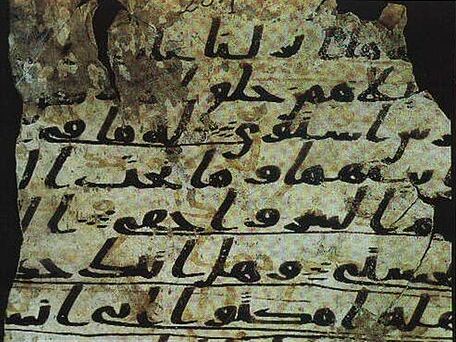|
Ahmad Bin Yahya
, succession = King and Imam of Yemen , image = YemenAhmad.jpg , image_size = , caption = , reign = 17 February 1948 – 19 September 1962 , predecessor = Yahya Muhammad Hamid ed-Din , successor = Muhammad al-Badr , spouse = , issue = Muhammad al-Badr Abdullah bin Ahmad Al-Abbas bin Ahmad , house = Rassids , father = Yahya Muhammad Hamid ed-Din , religion = Zaidi Shia Islam , mother = Fatima Al-Washali , birth_date = , birth_place = Yemen Vilayet, Ottoman Empire , death_date = , death_place = Ta'izz, Yemen , buried = Ahmad bin Yahya Hamidaddin (; June 18, 1891 – September 19, 1962) was the penultimate king of the Mutawakkilite Kingdom of Yemen, who reigned from 1948 to 1962. His full name and title was H.M. al-Nasir-li-Dinullah Ahmad bin al-Mutawakkil 'Alallah Yahya, Imam and Commander of the Faithful, and King of the Mutawakkilite Kingdom of the Yemen. A ... [...More Info...] [...Related Items...] OR: [Wikipedia] [Google] [Baidu] |
Imams Of Yemen
The Imams of Yemen, later also titled the Kings of Yemen, were religiously consecrated leaders belonging to the Zaidiyyah branch of Shia Islam. They established a blend of religious and temporal-political rule in parts of Yemen from 897. Their imamate endured under varying circumstances until the end of the North Yemen Civil War in 1970, following the republican revolution in 1962. Zaidiyyah theology differed from Isma'ilism or Twelver Shi’ism by stressing the presence of an active and visible imam as leader. The imam was expected to be knowledgeable in religious scholarship, and to prove himself a worthy headman of the community, even in battle if this was necessary. A claimant of the imamate would proclaim a "call" (dawah), and there were not infrequently more than one claimant. History Establishment The imams based their legitimacy on descent from the Islamic prophet Muhammad, mostly via al-Qasim ar-Rassi (d. 860). After him, the medieval imams are sometimes known as the ... [...More Info...] [...Related Items...] OR: [Wikipedia] [Google] [Baidu] |
Aden Protectorate
The Aden Protectorate ( ar, محمية عدن ') was a British protectorate in South Arabia which evolved in the hinterland of the port of Aden and in the Hadhramaut following the conquest of Aden by the Bombay Presidency of British India in 1839, and it continued until the 1960s. In 1940 it was divided for administrative purposes into the Western Protectorate and the Eastern Protectorate. Today the territory forms part of the Republic of Yemen. The rulers of the Aden Protectorate, as generally with the other British protectorates and protected states, remained sovereign: their flags still flew over their government buildings, government was still carried out by them or in their names, and their states maintained a distinct 'international personality' in the eyes of international law, in contrast to states forming part of the British Empire, such as Aden Colony, where the British monarch was the head of every state. History Informal beginnings What became known as the A ... [...More Info...] [...Related Items...] OR: [Wikipedia] [Google] [Baidu] |
Ahmad Muhammad Numan
Ahmad Muhammad Numan ( ar, أحمد محمد نعمان; 26 April 1909 – 27 September 1996) was an educator, propagandist and politician. He was a principal progenitor of modern Yemeni nationalism. Numan was an original founder of the Free Yemeni Movement, a propagandist in Cairo for the Yemeni Unionists and once foreign minister and twice Prime Minister of the Yemen Arab Republic. Biography Family and youth Numan was a descendant of a family of important shaykhs in al-Hujariyya, (Hereafter "Douglas.) a province in the southern highlands southeast of the department of Ta'izz. Numan's uncle, Abd al-Wahhab Numan, was the Ottoman-appointed ''hakim'' (governor of the region. The Numans were Sunni, specifically Shafi'i. Numan's father was a farmer. Numan was educated in the traditional Islamic ''kuttab'' elementary school. He spent seven years at the Shaff'd universita Zabid. After his father's death in 1934, Numan assumed the role of head of household, in which capaci ... [...More Info...] [...Related Items...] OR: [Wikipedia] [Google] [Baidu] |
Crown Prince
A crown prince or hereditary prince is the heir apparent to the throne in a royal or imperial monarchy. The female form of the title is crown princess, which may refer either to an heiress apparent or, especially in earlier times, to the wife of the person styled crown prince. ''Crown prince'' as a descriptive term has been used throughout history for the prince who is first-in-line to a throne and is expected to succeed (i.e. the heir apparent), barring any unforeseen future event preventing this. In certain monarchies, a more specific substantive title A substantive title is a title of nobility or royalty acquired either by individual grant or inheritance. It is to be distinguished from a title shared among cadets, borne as a courtesy title by a peer's relatives, or acquired through marriage. ... may be accorded and become associated with the position of '' heir apparent'' (e.g. Prince of Wales in the United Kingdom or Prince of Asturias in the Spain, Kingdom of Spain) ... [...More Info...] [...Related Items...] OR: [Wikipedia] [Google] [Baidu] |
Taiz
Taiz ( ar, تَعِزّ, Taʿizz) is a city in southwestern Yemen. It is located in the Yemeni Highlands, near the port city of Mocha, Yemen, Mocha on the Red Sea, at an elevation of about above sea level. It is the capital of Taiz Governorate. With a population of over 600,000 in 2005, it is the largest city in Yemen in terms of population ahead of the capital Sana'a and the southern port city of Aden. Due to the Taiz campaign (2015–present), ongoing campaign as part of Yemeni Civil War (2015–present), Yemen's civil war, Taiz is a battleground and a war zone. Once known as the "cultural capital of Yemen", the war has bestowed a new title, "city of snipers". History The 14th century traveller Ibn Battuta visited Taiz: We went on ... to the town of Taʻizz, the capital of the king of Yemen, and one of the finest and largest towns in that country. Its people are overbearing, insolent, and rude, as is generally the case in towns where kings reside. Taʻizz is made up of thre ... [...More Info...] [...Related Items...] OR: [Wikipedia] [Google] [Baidu] |
The Palace Of Imam Ahmad Bin Yahya Hamidaddin In Taiz
''The'' () is a grammatical article in English, denoting persons or things already mentioned, under discussion, implied or otherwise presumed familiar to listeners, readers, or speakers. It is the definite article in English. ''The'' is the most frequently used word in the English language; studies and analyses of texts have found it to account for seven percent of all printed English-language words. It is derived from gendered articles in Old English which combined in Middle English and now has a single form used with pronouns of any gender. The word can be used with both singular and plural nouns, and with a noun that starts with any letter. This is different from many other languages, which have different forms of the definite article for different genders or numbers. Pronunciation In most dialects, "the" is pronounced as (with the voiced dental fricative followed by a schwa) when followed by a consonant sound, and as (homophone of pronoun ''thee'') when followed by a v ... [...More Info...] [...Related Items...] OR: [Wikipedia] [Google] [Baidu] |
Sanaa
Sanaa ( ar, صَنْعَاء, ' , Yemeni Arabic: ; Old South Arabian: 𐩮𐩬𐩲𐩥 ''Ṣnʿw''), also spelled Sana'a or Sana, is the capital and largest city in Yemen and the centre of Sanaa Governorate. The city is not part of the Governorate, but forms the separate administrative district of "ʾAmānat al-ʿĀṣima" (). Under the Yemeni constitution, Sanaa is the capital of the country, although the seat of the Yemeni government moved to Aden, the former capital of South Yemen in the aftermath of the Houthi occupation. Aden was declared as the temporary capital by President Abdrabbuh Mansur Hadi in March 2015. At an elevation of , Sanaa is one of the highest capital cities in the world and is next to the Sarawat Mountains of Jabal An-Nabi Shu'ayb and Jabal Tiyal, considered to be the highest mountains in the country and amongst the highest in the region. Sanaa has a population of approximately 3,937,500 (2012), making it Yemen's largest city. As of 2020, the greater S ... [...More Info...] [...Related Items...] OR: [Wikipedia] [Google] [Baidu] |
Kaaba
The Kaaba (, ), also spelled Ka'bah or Kabah, sometimes referred to as al-Kaʿbah al-Musharrafah ( ar, ٱلْكَعْبَة ٱلْمُشَرَّفَة, lit=Honored Ka'bah, links=no, translit=al-Kaʿbah al-Musharrafah), is a building at the center of Islam's most important mosque, the Masjid al-Haram in Mecca, Saudi Arabia. It is the most Holiest sites in Islam, sacred site in Islam.Wensinck, A. J; Kaʿba. Encyclopaedia of Islam IV p. 317 It is considered by Muslims to be the ''Bayt Allah'' ( ar, بَيْت ٱللَّٰه, lit=House of God) and is the qibla ( ar, قِبْلَة, links=no, direction of prayer) for Muslims around the world when performing salah. The current structure was built after the original building was damaged during the Siege of Mecca (683), siege of Mecca in 683. In Early Islam (other), early Islam, Muslims faced in the general direction of Jerusalem as the qibla in their prayers before changing the direction to face the Kaaba, believed by Musli ... [...More Info...] [...Related Items...] OR: [Wikipedia] [Google] [Baidu] |
Idrisid Emirate Of Asir
The Idrisid Emirate of Asir () was a state located in the Arabian Peninsula. The Emirate was located in the geographical region of Asir and Jizan in what is now southwestern Saudi Arabia, and extending to Hodeidah, northwest of Yemen. History In the early 20th century the Asir region was in chaos. De jure, the region was governed as the Sanjak of Asir which was part of the Vilayet of Yemen, although the Ottomans only had de facto control over port cities, while the hinterlands were ruled by various tribal chiefs. Even in the areas of Ottoman control, anti-Turkish sentiment was brewing, beginning ethnic and sectarian conflicts between the Turkish overlords and the local inhabitants. Due to these circumstances, Sayyid Muhammad ibn Ali al-Idrisi began spreading his grandfather's teachings, as well as calling for the local inhabitants to maintain a stricter adherence to Islam. On December 24, 1908, Muhammad proclaimed himself Imam, after which many tribes in the Asir region recog ... [...More Info...] [...Related Items...] OR: [Wikipedia] [Google] [Baidu] |
Imam
Imam (; ar, إمام '; plural: ') is an Islamic leadership position. For Sunni Muslims, Imam is most commonly used as the title of a worship leader of a mosque. In this context, imams may lead Islamic worship services, lead prayers, serve as community leaders, and provide religious guidance. Thus for Sunnis, anyone can study the basic Islamic sciences and become an Imam. For most Shia Muslims, the Imams are absolute infallible leaders of the Islamic community after the Prophet. Shias consider the term to be only applicable to the members and descendents of the '' Ahl al-Bayt'', the family of the Islamic prophet Muhammad. In Twelver Shiasm there are 14 infallibles, 12 of which are Imams, the final being Imam Mahdi who will return at the end of times. The title was also used by the Zaidi Shia Imams of Yemen, who eventually founded the Mutawakkilite Kingdom of Yemen (1918–1970). Sunni imams Sunni Islam does not have imams in the same sense as the Shi'a, an importan ... [...More Info...] [...Related Items...] OR: [Wikipedia] [Google] [Baidu] |
King
King is the title given to a male monarch in a variety of contexts. The female equivalent is queen, which title is also given to the consort of a king. *In the context of prehistory, antiquity and contemporary indigenous peoples, the title may refer to tribal kingship. Germanic kingship is cognate with Indo-European traditions of tribal rulership (c.f. Indic ''rājan'', Gothic ''reiks'', and Old Irish ''rí'', etc.). *In the context of classical antiquity, king may translate in Latin as '' rex'' and in Greek as '' archon'' or '' basileus''. *In classical European feudalism, the title of ''king'' as the ruler of a ''kingdom'' is understood to be the highest rank in the feudal order, potentially subject, at least nominally, only to an emperor (harking back to the client kings of the Roman Republic and Roman Empire). *In a modern context, the title may refer to the ruler of one of a number of modern monarchies (either absolute or constitutional). The title of ''king'' is us ... [...More Info...] [...Related Items...] OR: [Wikipedia] [Google] [Baidu] |
Imam
Imam (; ar, إمام '; plural: ') is an Islamic leadership position. For Sunni Muslims, Imam is most commonly used as the title of a worship leader of a mosque. In this context, imams may lead Islamic worship services, lead prayers, serve as community leaders, and provide religious guidance. Thus for Sunnis, anyone can study the basic Islamic sciences and become an Imam. For most Shia Muslims, the Imams are absolute infallible leaders of the Islamic community after the Prophet. Shias consider the term to be only applicable to the members and descendents of the '' Ahl al-Bayt'', the family of the Islamic prophet Muhammad. In Twelver Shiasm there are 14 infallibles, 12 of which are Imams, the final being Imam Mahdi who will return at the end of times. The title was also used by the Zaidi Shia Imams of Yemen, who eventually founded the Mutawakkilite Kingdom of Yemen (1918–1970). Sunni imams Sunni Islam does not have imams in the same sense as the Shi'a, an importan ... [...More Info...] [...Related Items...] OR: [Wikipedia] [Google] [Baidu] |






.png)





